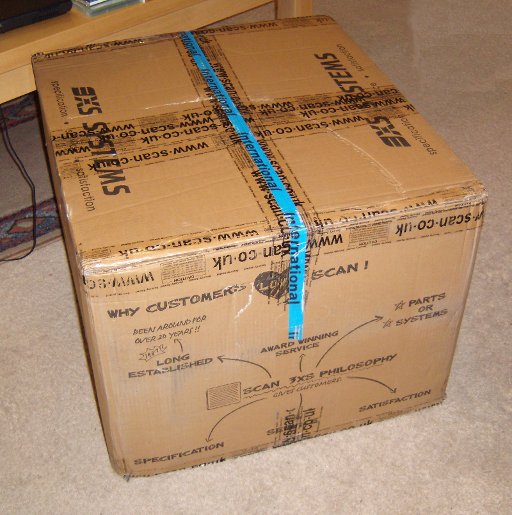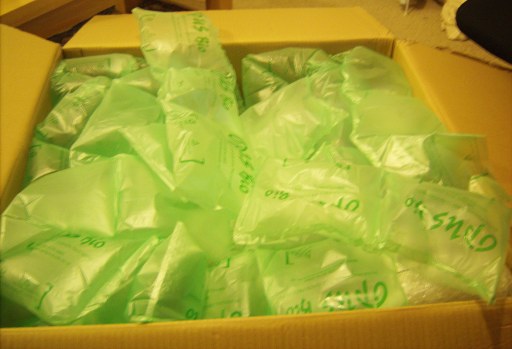
There’s something terribly nice about a box full of stuff 🙂 Scan got the parts to me right on time so Thursday night was to be assembly night, with the goal of getting to a working POST by the end. So out came the boxcutter and I started unpacking…

There are component parts in here somewhere...
So here are all the components, less the CPU which is hiding off to one side, just out of shot:

Components unwrapped...
Looking at the case first of all (nice solid construction on this…):

Case from front

Main compartment

Fans in main compartment
The assembly went relatively smoothly, though it did take a few hours, mainly because I wasn’t really pushing myself. The PSU went in first, then the DVD drive and the hard drive, then the motherboard pillars went in and then the motherboard, then the graphics card, then some swearing, out came the graphics card and the hard drive was moved two bays down so the graphics card didn’t poke it, then the graphics card went in, then more swearing, the motherboard came off its pillars so I could pull it back an inch to fit the I/O facia panel, then back goes the motherboard and in goes the CPU and then I assemble the CPU heatsink/cooler assembly and lots of swearing and poking later, it’s latched onto the mounting lugs. I’m rather paranoid about those lugs not being sufficient in a tower configuration – some tiewrapping is due there I think just in case. After all this, it was wiring time.
The less said about wiring time, the better, but put it this way:

Wiring. Why'd it have to be Wiring?
Eventually, everything was where I wanted it, with everything plugged in, screwed on, clipped, latched, tiewrapped, twisted, pushed, poked, pulled, prodded, bent and scrunched as appropriate.

Final Assembly

Final Assembly

Final Assembly

Final Assembly
It won’t be winning any build awards for neatness, but it’s in, it’s secure, and it’s tidy enough. So now, the moment of truth… the power button… Continue reading →
Like this:
Like Loading...














